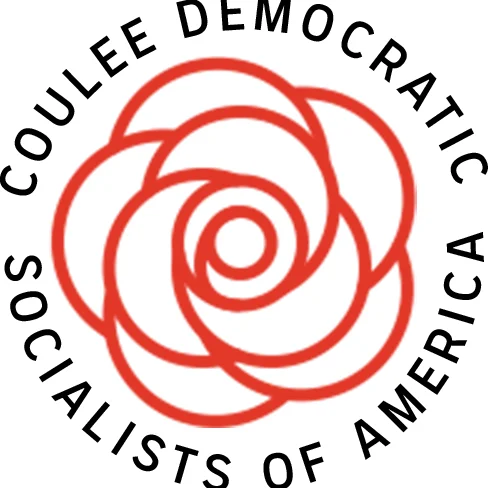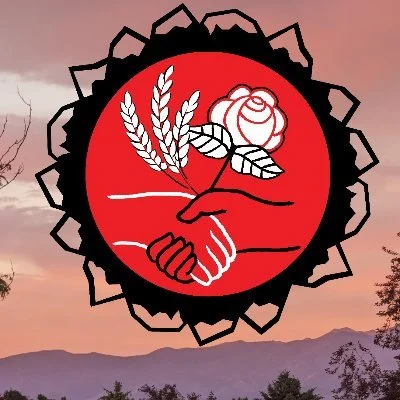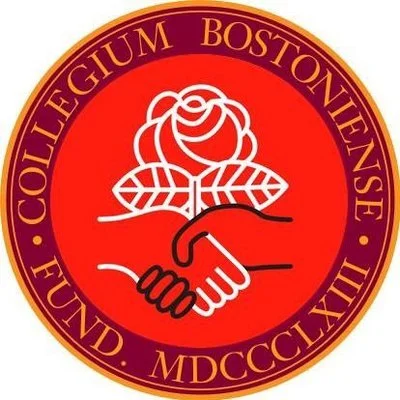

Reclaim Pride


Housing and Homelessness programming with CTU: Systemic problems and Solutions
The city and county of La Crosse are each receiving over $20 million in stimulus funding. The broad left community must act together to ensure that public oversight and input are the driving force in spending this funding. This level of funding is a once in generation opportunity to pay for projects that can save lives and uplift our community as a whole. Please get involved in the decision making process.
Coulee Tenants United, CouleeDSA’s tenant organizing working group, is participating in 2 nights programming at the La Crosse Public Library on Housing and Homelessness this month. CTU is a working group dedicated to educating, organizing, and empowering renters in the Coulee region.
Part 1 on June 21st at 6:30 PM is focused on homelessness, while part 2 on June 28th at 6:30 PM covers housing, development, market and non-market solutions, and tenancy struggles. Follow the links to get registered. Program recordings will be available for those who can’t make it in person.
Long-term, systemic solutions to the housing crisis require large up front investment. Demanding that this historic stimulus bill is leveraged to better our community through permanent projects should be a priority. Reach out to us at CouleeDSA@gmail.com or at our Facebook page if you want to get involved.
The post Housing and Homelessness programming with CTU: Systemic problems and Solutions first appeared on Coulee DSA.


It's Always Hot in Palestine: BDS and the Anti-Imperialist Struggle


Protected: May Regular Meeting Minutes
This post is password protected. You must visit the website and enter the password to continue reading.


Defund NYPD, Refund NYC with Tiffany Cabán
Last night, hundreds of people occupied the amphitheatre area in front of the Brooklyn Museum to share stories and collectively mark the anniversary of the murder of George Floyd. At least 15 NYPD vehicles lurked on Eastern Parkway 100 yards away. The police presence included the large vans used to transport people who have been arrested as well as two vans for NYPD’s notorious Strategic Response Group, a “riot control” division which has violently arrested, pepper sprayed, and intimidated anti-racist and anti-fascist protestors consistently over the last year. SRG was established in 2015 and has an estimated yearly budget of $68 million.
We know it doesn’t have to be this way. We can change our city for the better by redistributing the massive amount of resources NYPD uses to harass and intimidate New Yorkers and investing that money in healthcare, education, housing, parks, art, and other things that will actually improve our quality of life and keep our communities safe. Tonight on Revolutions per Minute, we hear from DSA-endorsed candidate for City Council District 22 Tiffany Cabán, a long time de-carceral activist, on why she was proud to sign on to DSA’s vision for real public safety and budget justice. We’ll also be taking your calls live with Kay Gabriel, an NYC-DSA member and Defund NYPD organizer.
Learn more about Tiffany Cabán and her campaign at www.cabanforqueens.com.
Has your City Council candidate signed on to the Real Public Safety pledge? Visit bit.ly/defundpressure2021 to find out and get involved.
Revolutions per Minute looks forward to seeing you at the Defund NYPD week of action May 31 - June 6! View a full schedule and sign up at https://www.defundnypd.com/woa.


Beat Swords Into Plowshares - a Conversation with Mark Colville


Letter to Father Leahy on violence in Gaza

Dear Father Leahy,
We are writing to ask that you make a public statement condemning the Israeli military assault on Gaza. This is not a conflict between two equal belligerent parties. Israel maintains one of the world’s most sophisticated and powerful militaries, while two million Palestinians have been under siege, locked in an open-air prison in the Gaza Strip for over a dozen years, and denied access to many basic necessities. Over the last 12 days, the Israeli military killed 231 people, including 65 children. About 91,000 Palestinians have been displaced.
On Sunday, Pope Francis made an appeal for peace in the region and specifically described the death of children as terrible and unacceptable. He called for an end to the violence:
In the name of God who has created all human beings equal in rights, duties and dignity and has called them to live together as brothers and sisters, I appeal for calm and, to those that with the responsibility, [I appeal] to stop the sound of the arms and to walk on the path of peace with the help of the international community.
We believe that in times of great injustice, it is important for leaders everywhere to speak out in the name of peace and justice. We ask that you use your platform as President of one of the foremost Jesuit Catholic universities in the United States to speak out on behalf of the oppressed. Although we are relieved that a ceasefire has been reached, we believe that now is not the time to become complacent. Rather, we encourage you to use this moment to demonstrate your commitment to peace and human rights worldwide.
Last summer, the Pope called on Catholic institutions to divest not only from fossil fuels but also from the armaments industry. It is a subject he has spoken about throughout his pontificate. In 2017, he stated,
It is an absurd contradiction to speak of peace, to negotiate peace, and at the same time promote or permit the global arms trade. Is this war or that war really a war to solve problems? Or is it a commercial war for selling weapons in illegal trade and so that the merchants of death can get rich?
In a speech to the US Congress in 2015, he asked,
Why are deadly weapons being sold to those who plan to inflict untold suffering on individuals and society? Sadly, the answer, as we all know, is simply for money: money that is drenched in blood, often innocent blood. In the face of this shameful and culpable silence, it is our duty to confront the problem and to stop the arms trade.
In the spirit of these declarations, we ask that BC sever its ties to the military industrial complex to ensure it is not complicit in any way in supporting atrocities in Gaza or anywhere else. The CEO of Raytheon, Thomas Kennedy, sits on the Board of Governors of the BC Chief Executives Club. Raytheon is a major supplier of arms to Israel. In 2014, Israel used F-16s armed with the company’s missiles during its assault on Gaza, killing 1,462 civilians, including 550 children. Defense for Children International found that 225 of those children were killed from missiles fired from fighter planes. Raytheon munitions were also used to shell a UN school inside of the Jabalia refugee camp in 2009, killing between 30 and 40 people. In 2019, the Young Democratic Socialists of BC documented how Raytheon’s weapons have been used in war crimes against civilians in places like Yemen. In 2015, the US-backed Saudi coalition used Raytheon munitions to bomb a funeral at a community hall in Sana’a, killing 140 people and wounding 525. In the spring of 2019, Kennedy hosted an event for the BC Chief Executives Club with the CEO of General Dynamics, another arms manufacturer whose weapons have been used to kill civilians in Yemen and Syria. That same year, Kennedy told investors that increased tensions with Iran were good for the company’s business prospects. Boston College should not associate itself with people and corporations that profit off of war.
No institution that associates with these arms manufacturers can claim to adhere to any set of moral principles. There is no ambiguity in this, just as there is no ambiguity in the Pope’s denunciation of the profit motive behind the death and destruction these corporations enable.
BC must cut ties with people like Kennedy.
We hope you will add your voice to the chorus of those speaking out in the face of oppression and injustice and not remain silent during this crisis.


¡Hasta la Victoria, Siempre! with Alexa Avilés
With only three weeks left in the New York State legislative session and city primaries following up close behind, socialist are in the streets! Tonight we’ll hear from comrades in Astoria who are fighting to pass Public Power as well as comrades in Sunset Park, who are working to elect DSA-endorsed candidate for city council Alexa Avilés. And we’ll also talk with Alexa herself about how her mother’s struggle for Puerto Rican liberation and being a mother fighting for her own kids’ education has shaped her politics and about her community’s vision for District 38.
To get involved with Alexa's campaign: www.alexaforcouncil.com/
To get involved with the campaign for Public Power: https://ecosocialists.nyc/events/


DSA book club is starting ‘Blackshirts and Reds’
“The Coulee DSA books club will begin reading Michael Parenti’s “Blackshirts and Reds” beginning Tuesday, May 25th at 7 PM. Parenti’s 1997 text is considered a classic among many on the left. Among many themes, the book explores how corporate power has embraced fascism throughout history, how historical revolutions freed populations from the forces of exploitation, the enduring power of Marxism, and the importance of class analysis in understanding and comprehending the political realities of our time.

The Coulee DSA Book Club meets every Tuesday night at 7 PM, It doesn’t require regular attendance, so feel free to stop by or drop in and out as you have time. Reading is strongly encouraged but not required. The discussion often goes off on tangents and covers a broad array of topics, and we would love you to add your voice to the discussion! Reply to this email if you are interested in joining and we will connect you to the group. “
The post DSA book club is starting ‘Blackshirts and Reds’ first appeared on Coulee DSA.


Demand BadgerCare Expansion Now!
How would your life change if you no longer had to worry about healthcare? Maybe you would quit that job you hate and start a business, or work part-time so you could spend more time with your kids. Maybe you could finally get that dental work you have been putting off, or use the money you save on insurance premiums to pay off debt.
We say “healthcare is a human right” because it is a moral and practical imperative to ensuring people can live lives of value, and because providing it would eliminate unnecessary suffering in all our communities. Ensuring universally accessible healthcare would literally SAVE LIVES.
Just as importantly, it would break the shackles that our current for-profit healthcare system places on average Americans. In the “freest nation in the world”, many of us are beholden to jobs we hate, working long hours to pay up to a third of our income for insurance (if we are lucky enough to have it), never able to reach the financial or life goals we set for ourselves. A universal, single-payer healthcare system will open up opportunities for the average American. It will give everyone more flexibility in employment, prevent crippling medical debt, and ensure care to marginalized populations.
Right now in Wisconsin we have an opportunity to take a step closer to this goal, by accepting federal Medicaid expansion funding and using it to expand the WI BadgerCare program to cover those making between 0-138% of the poverty line. This would provide affordable healthcare to an additional 91,000 Wisconsinites, while saving our state approximately $630 million in taxes. While Governor Evers has proposed this expansion in his biennial budget, our legislature does not currently support accepting these federal funds.
Coulee DSA is fighting in coalition with other groups across the state to demand the WI legislature include BadgerCare expansion in their next budget. You can help by reaching out to your local legislator to let them know you support this legislation or by helping CDSA spread the word at our upcoming canvassing events in Viroqua.
Coulee DSA’s Health Care Justice working group meets every other Wednesday at 7 PM. Contact us at couleedsa@gmail.com if you are interested in learning more or joining up.
The post Demand BadgerCare Expansion Now! first appeared on Coulee DSA.